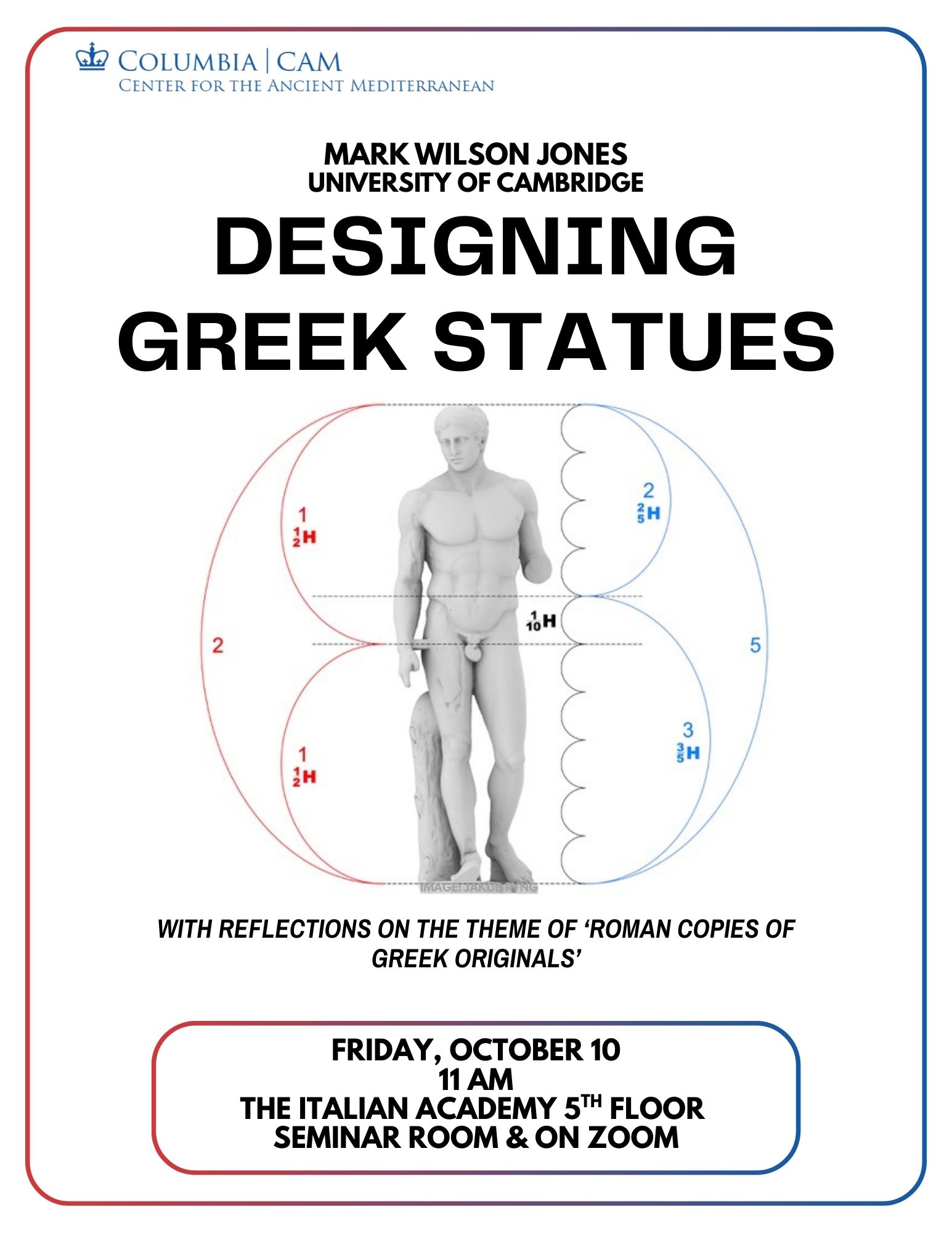
11:00 am – 1:00 pm
The Italian Academy, 5th floor seminar room
Due to unforeseen circumstances, this event has been canceled – thank you for your understanding.
Mark Wilson Jones
Designing Greek Statues
Abstract
Immense artistic and scholarly effort has gone into researching Greek and Roman statuary, as befits its cultural significance. Nowadays questions of authorship, chronology and style dominate. There is much discussion of poses, of the tangibles of production (materials, technique, copying), and the intangibles of art (intention, character, mood). Yet the bridge between the tangible and intangible that is design is
strangely neglected.
Design and proportion are fundamental to creating statues, however, and this was particularly true in Classical Greece as sculptors strove to capture human form and action. Composition relied on extracting proportions from living anatomy and prior masterpieces. Relationships also needed defining for execution and assembly. Numerical simplicity was meanwhile central to conceptions of the ideal, of how things ought to be and not just how they are. Fragments of Polykleitos’s lost treatise, the Kanon, tell us so, as does ‘Vitruvian Man’, whom Leonardo da Vinci would later immortalize.
Given that the abstract basis of design mattered to Polykleitos and Vitruvius, and given that in Greece sculptors were often architects, and vice versa, we will turn to architectural practice for insights of potential applicability to statues. Surveys show that the famous Riace bronzes to be 6 ft tall – just like Vitruvian Man – when expressed in ancient units. These masterpieces share strikingly accurate simple proportions in some respects, while differing in others, just like Corinthian capitals, for example. The key paradox of sameness-yet-difference applies to statues: a few simple stable proportions cohabit with others that change. Thus, each statue becomes unique, just as we all share human traits and yet are unique. This is hardly surprising given the Greeks’ interest in nature and the principle of mimesis / imitatio. The only surprising thing is that hardly anyone – until now – cared to notice.
The lecture will conclude with reflections on the controversial theme of “Roman copies of Greek originals.”

